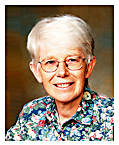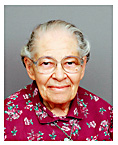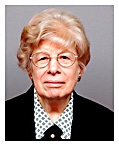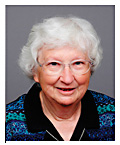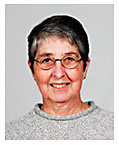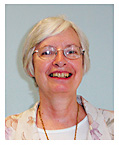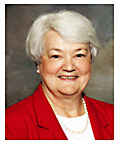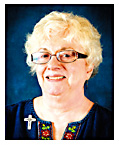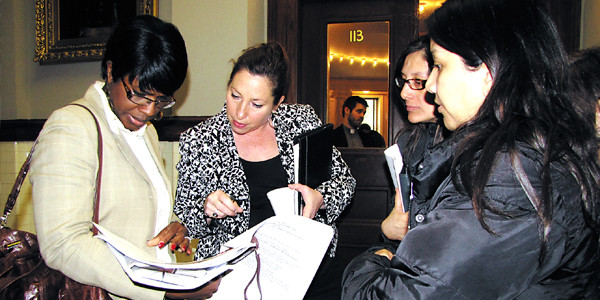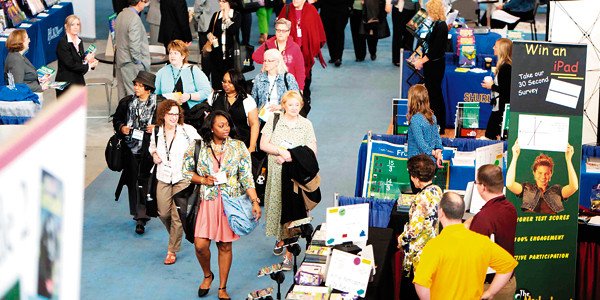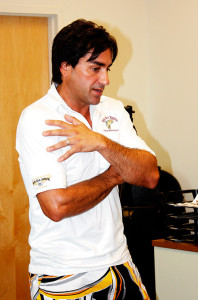
Songwriter Steve Azar speaking at the music room dedication.
GREENVILLE – St Joseph High School has a new music room thanks to support from the Steve Azar Delta Soul celebrity golf and charity event. Proceeds from the fund-raiser for the St. Cecelia Foundation helped make the room possible.
Father Bill Henry, pastor of St. Joseph Parish, blessed the room at the June 5 dedication celebration. St. Joseph School principal, Paul Artman, welcomed all of the guests, which included founders of the St. Cecilia Foundation, Steve and Gwen Azar, the Delta Soul Committee, sponsors of the Delta Soul event, alumni and friends.
Azar, a native of the Mississippi Delta, is a songwriter, artist and producer who released his debut album, Waitin’ on Joe in 2001. Azar’s song, “I Don’t Have To Be Me, Til Monday,” received the Three Million Radio Airplay Award and is among the top ten most played songs on country radio in the past decade.
The St. Cecilia Foundation, named after the patron saint of musicians and composers, was founded in 2006. The focus of the foundation is to aid charitable organizations, particularly in the Delta region, that aid sick, disadvantaged and abused children of all denominations. The foundation also supports the arts and music within educational and cultural institutions.
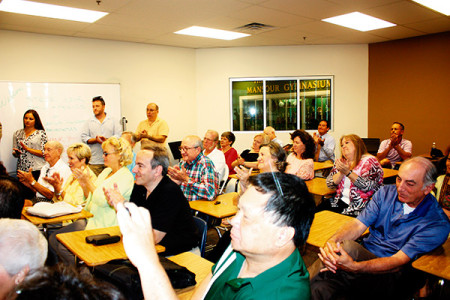
Friends, family and alumni gather to celebrate the dedication of a new music room at St. Joseph School thanks to support from Steve Azar’s St. Cecilia Foundation. (Photos by Lisa Zepponi)
In a letter Azar posted in the website for the Delta Soul event he mentioned he has witnessed the progress and difference “we are all making together for the Delta. We must continue to nurture the arts in our children’s lives and in the lives of future generations.”
He added that through the proceeds from the golf and charity event the foundation was able to set up a scholarship fund that awarded 10 college scholarships to one graduate from each high school in Washington County and start a music and arts program at St. Joseph High School, where three generations of his family have attended. The foundation also created and funded a unique career planning program at Delta State University that integrates business students with music and art students.
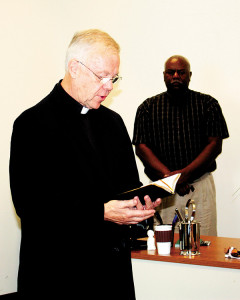
Father Bill Henry, pastor of St. Joseph Parish, leads the group in prayer before the room dedication.
The music and arts programs at both Our Lady of Lourdes and St. Joseph Schools have benefited from Azar’s St. Cecilia Foundation and the accomplishments of the past few years reflect that support. The schools report awards and benefits such as students winning GreenvilleArts Council Merit of Excellence awards in the annual Student Art Exhibit; the creation of full music curriculum, including choir, sacred music, piano, and band; students winning first place in the Mississippi High School Film Competition for two consecutive years; the creation of a digital video department and curriculum; official Selection of a student-created short film by the New York All American High School Film Festival; a student winning a Silver Key Award in watercolor art; students winning two Regional Scholastic Art Awards; invitations to participate in various National and International Film Festivals and the addition of handbells for Lourdes music classes and the Garage Band App for iPads for music classes.













